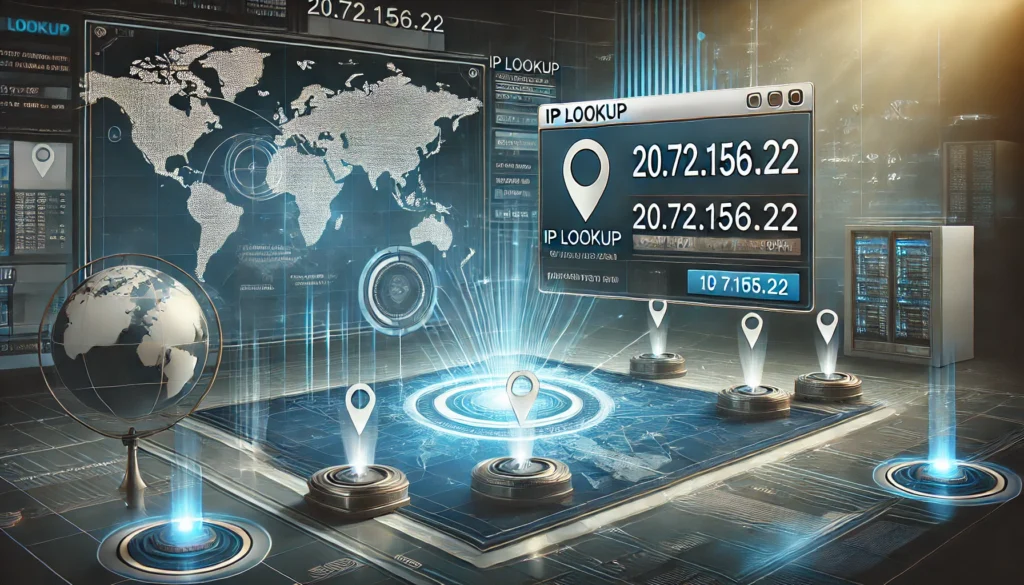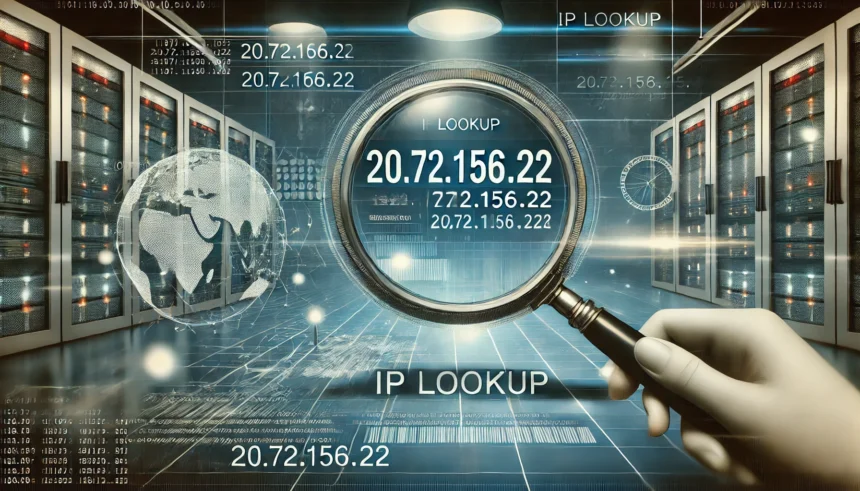When people search for an “ip lookup 20.72.156.22,” they’re often asking questions like:
- What does this IP address reveal?
- Can I trace its location or owner?
- Is this information private or public?
These are real concerns. Whether you’re troubleshooting a network issue or just curious about online privacy, understanding IP lookups matters.
Why Do People Search for ip lookup 20.72.156.22?
IP addresses like ip lookup 20.72.156.22 are identifiers that connect devices to the internet.
Think of it like a digital address for sending and receiving information.
But here’s the catch: with an IP lookup, you can learn surprising details about an address.
For example:
- General Location: IPs can point to the city or region where a device is located.
- ISP (Internet Service Provider): It might tell you which company provides internet to the user.
- Hostname: Sometimes, the lookup reveals the name assigned to the address.
You might be surprised at how much can be uncovered.

How Does an IP Lookup Work?
An IP lookup digs into public databases to reveal information tied to an address like ip lookup 20.72.156.22.
Here’s a simplified breakdown:
- You input the IP.
- The lookup tool searches public records.
- Results pop up, showing details like the region, ISP, and even a rough map.
It’s like typing an address into Google Maps—but for digital locations.
Common Reasons to Lookup an ip lookup 20.72.156.22
- Troubleshooting Network Issues If you’re experiencing connection problems, identifying IP details can point you toward the issue.
- Security Concerns Got a suspicious login attempt? An IP lookup helps trace its origin.
- Understanding Website Visitors Website owners often check IPs to see where their traffic comes from.
- Privacy Curiosity People sometimes want to know what others can see about their own IP.
Is an ip lookup 20.72.156.22 Legal?
Yes, it’s perfectly legal to perform an IP lookup.
Here’s why:
- The information retrieved is already publicly available.
- It doesn’t reveal personal or sensitive data like names or emails.
But don’t cross ethical lines. Using this info maliciously could lead to consequences.
Can You Find the Exact Location of ip lookup 20.72.156.22?
No, not exactly.
IP lookups only show general locations.
For instance:
- City or region? Yes.
- Street address? No.
This is because ISPs assign IPs in blocks tied to areas, not specific homes.

How to Perform an ip lookup 20.72.156.22
There are several easy ways to check an IP:
- Online Tools: Websites like iplocation.net or whois.domaintools.com are free and simple.
- Command Line: For tech-savvy folks, commands like
nslookuportracertwork wonders. - Browser Extensions: Some tools integrate directly into your browser for quick lookups.
Real-Life Example: What ip lookup 20.72.156.22 Might Tell You
Imagine you’re managing a website, and ip lookup 20.72.156.22 shows up in your logs.
After an IP lookup, you find:
- The user is browsing from Seattle, USA.
- Their ISP is Microsoft Corporation (yes, big companies own IP ranges too).
This could help you tailor your website to better serve visitors—or spot suspicious traffic.
FAQs About ip lookup 20.72.156.22
Q: Can I hide my IP address?
A: Yes. Tools like VPNs (Virtual Private Networks) can mask your IP by routing your traffic through another server.
Q: Is ip lookup 20.72.156.22 private or public?
A: It’s public. This means it’s accessible for lookup tools but doesn’t expose personal data.
Q: Are free lookup tools accurate?
A: Mostly, yes. But some might lack updated databases, so results can vary.
Q: Can someone track me using my IP?
A: Not specifically. While they can see your city or region, exact tracking requires legal permissions and cooperation with ISPs.
Q: Why does my IP show a different location?
A: Sometimes, ISPs route traffic through different regions, making your IP seem like it’s elsewhere.
Wrapping It Up: Why ip lookup 20.72.156.22 Matters
Searching for details about ip lookup 20.72.156.22? You’re not alone.
IP lookups offer valuable insights, from spotting unusual activity to enhancing privacy awareness.
Whether you’re a curious browser or a tech enthusiast, knowing how to decode an IP can feel empowering.


